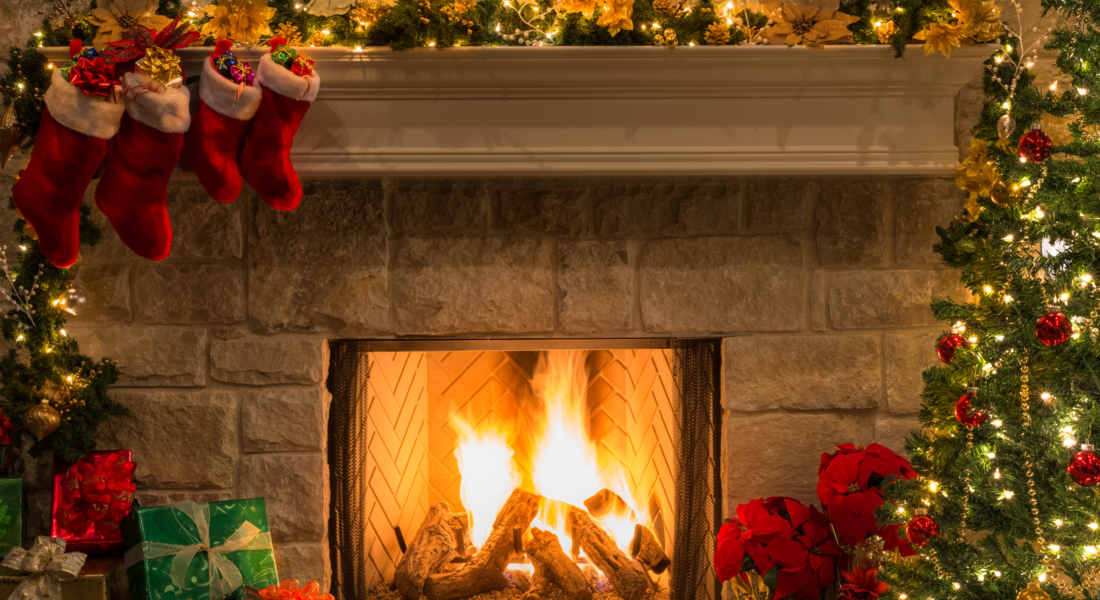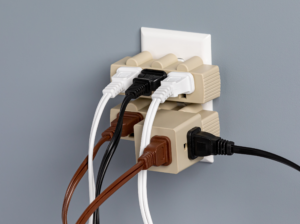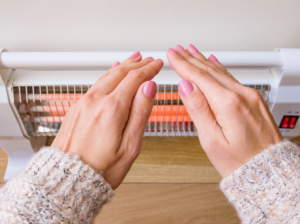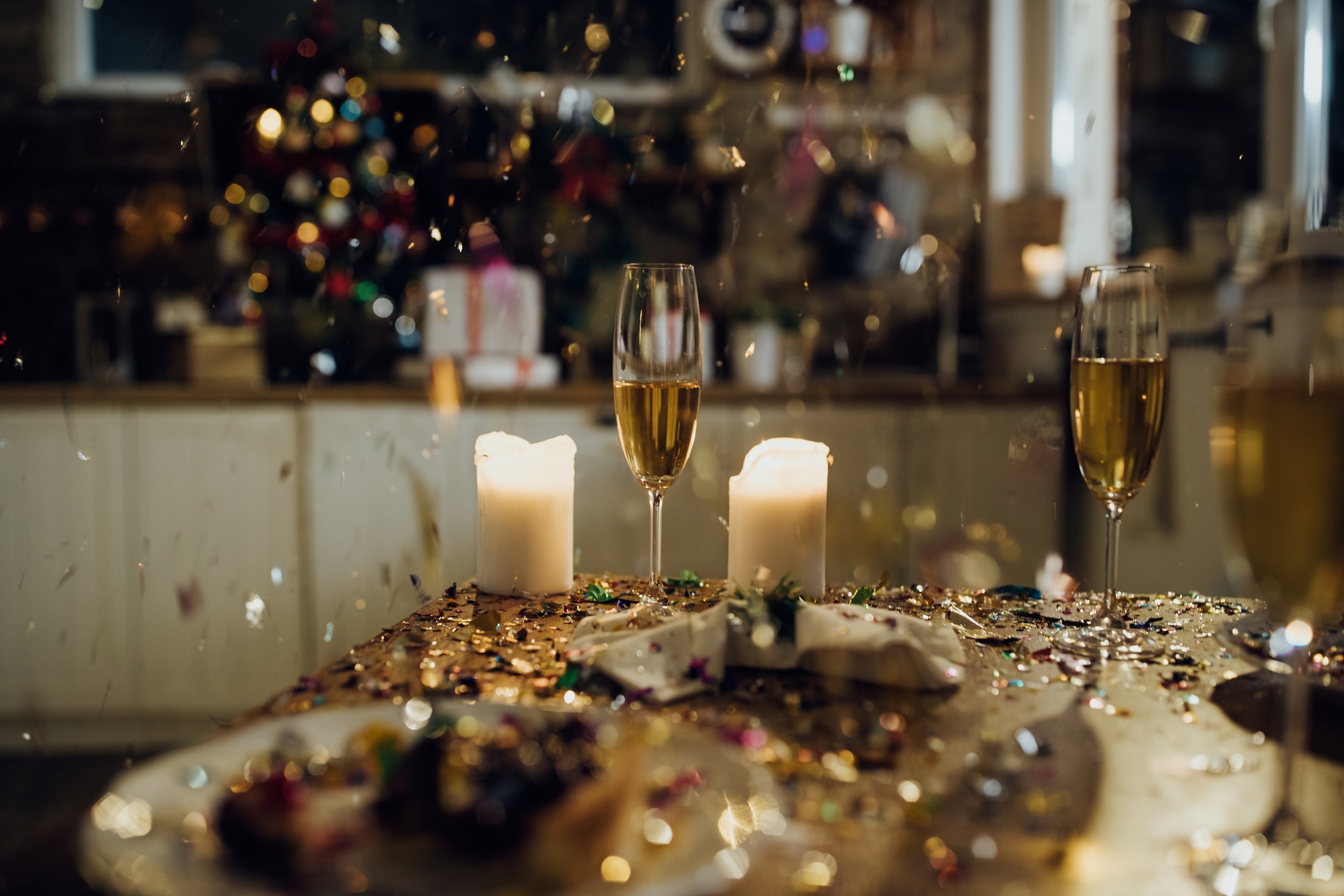Winter brings cozy nights, holiday decorations, and, unfortunately, increased fire risks in many households. Falling temperatures mean heating devices, holiday lighting, and festive decorations, which can elevate fire hazards. Understanding these risks and taking simple safety steps can help protect your home and loved ones from potentially devastating house fires this winter.
Here’s an overview of the most common winter fire hazards and how to avoid them.
Christmas Tree Fires
Christmas trees, especially if dry, can be a significant winter fire hazard. A dry tree ignites faster than many people realize, and a single spark from faulty lights or candles can lead to a house fire.
According to the National Fire Protection Association (NFPA), Christmas trees are involved in an average of 150 house fires every year, resulting in property damage, injuries, and sometimes fatalities.
Prevention Tips
- Choose a fresh, green tree and water it daily to prevent drying out.
- Place your tree away from heat sources such as fireplaces, radiators, or candles.
- Use only lights approved by reputable testing laboratories, and ensure they’re in good condition without frayed wires or broken bulbs.
- Turn off Christmas lights before going to bed or leaving the house.
- Consider using LED lights, which generate less heat than traditional bulbs, reducing the risk of fire.
Overloaded Circuits and Electrical Fires
With the increased use of lights, decorations, and electrical heating devices, it’s easy to overload circuits in winter. Overloaded electrical outlets and power strips are major causes of house fires, as they can overheat and ignite surrounding materials.
Prevention Tips
- Avoid plugging too many high-wattage devices into a single outlet. Instead, spread out electrical loads across multiple outlets.
- Use power strips with surge protection and avoid using cheap or damaged extension cords.
- Don’t run cords under rugs or furniture where they can be easily damaged or cause overheating.
- Check your circuit breaker panel to ensure circuits are not overloaded. If you’re uncertain, consult a licensed electrician to assess your home’s electrical capacity.
Learn more fire damage prevention tips here: How to Prevent Fire Damage In Your Home
Space Heaters
Space heaters are convenient for adding extra warmth to specific rooms but are one of the top winter fire hazards. Many space heater fires happen because the device is too close to flammable materials, such as:
- Curtains
- Bedding
- Furniture
Prevention Tips
- Choose a heater with a tip-over switch that automatically turns off if it falls over.
- Maintain a three-foot rule, keeping space heaters at least three feet away from anything that could burn.
- Plug space heaters directly into a wall outlet rather than using extension cords, which can overheat.
- Never leave space heaters unattended or running while you’re asleep.
Fireplaces and Wood Stoves
Fireplaces and wood stoves can create warmth and ambiance, but they require proper maintenance to avoid becoming a winter fire hazard. Creosote buildup, for example, is highly flammable and can lead to chimney fires.
Prevention Tips
- Have your chimney professionally cleaned and inspected annually.
- Use a sturdy screen or glass door to contain sparks and embers.
- Burn only dry, seasoned wood to reduce creosote buildup.
- Always extinguish the fire completely before going to bed or leaving the house.
For more information on fireplace safety, read our article: Fireplace Safety Tips for Winter
Candles
Candles add warmth and scent to winter days, but they’re an open flame and easily lead to fires when left unattended or placed near flammable items.
Prevention Tips
- Keep candles in sturdy holders and place them on flat, stable surfaces.
- Never leave candles unattended and always extinguish them before leaving a room or going to bed.
- Consider using flameless LED candles as a safer alternative.
Stay Safe this Holiday Season
Winter fire hazards are common but entirely manageable with a few precautions. By being mindful of holiday decorations, space heater placement, electrical load, and fireplace safety, you can enjoy a safe and cozy winter season.
Remember to test smoke detectors in every bedroom and hallway, and have an escape plan in place for added protection. However, if you do experience fire damage this winter, contact 24 Hour Flood Pros for expert emergency fire damage restoration.
Our team is available around the clock to help restore your home and give you peace of mind during challenging times!






